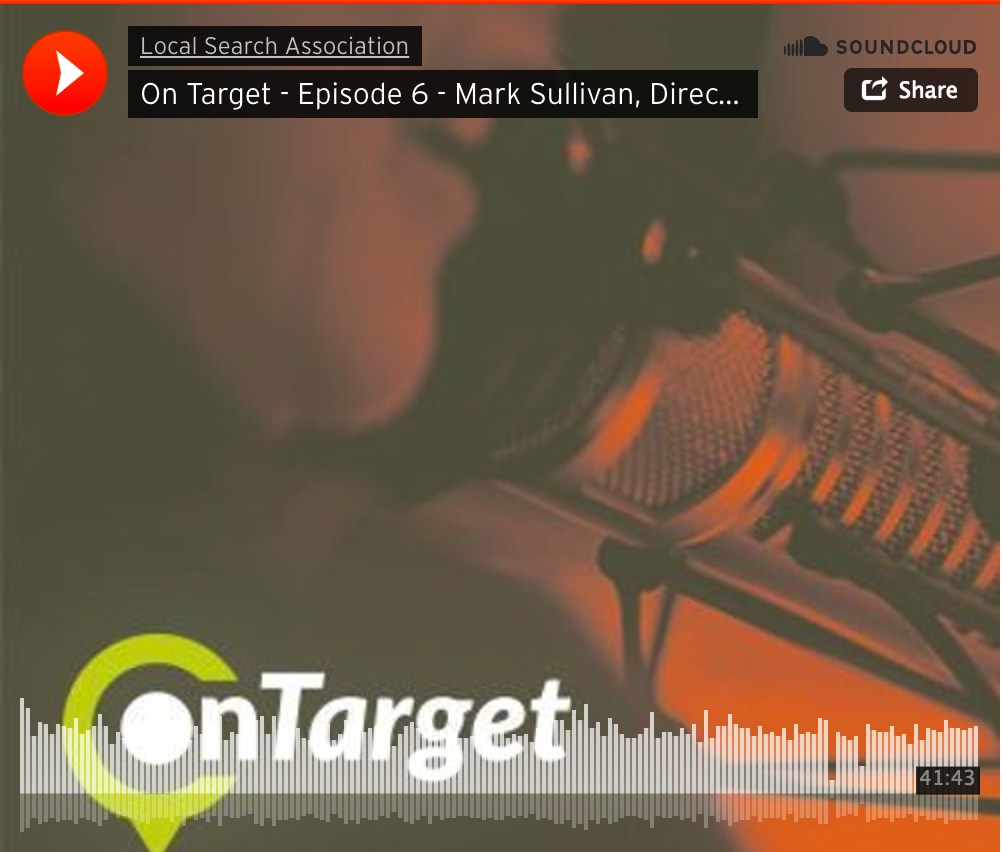The evolution of voice search and its place in the the future of search engine marketing is a hot topic among marketers these days. CallRail’s Director of Demand Generation, Mark Sullivan, joined Greg Sterling, VP of Strategy and Insights at Local Search Association on their On Target podcast to discuss voice search, virtual assistants, bots and their implications for marketers. As chatbots and their capabilities become more sophisticated, new attribution technologies are emerging rapidly.
With the growing use of voice interfaces like Alexa and Google Home, there comes the question of impact on associated user behavior. Will voice assisted search options reshape how consumers conduct purchases? Or is the drastic predicted change being over-hyped?
According to Mark Sullivan, because we’re reaching massive consumer deployment of these types of devices, we are entering a brave new world of voice bots, something he discussed recently in a piece for Venture Beat. Google itself has made clear that they’re still in the early stages of development, and we should expect to see improvement in the coming months.
In the podcast, Mark and Greg discuss the opportunity marketers have to optimize content and authoritative snippets that answer voice queries, as well as the opportunity for monetization through advertising and increased accuracy in attribution. They delve into the customer journey and how new technologies should be implemented to heighten the consumer’s experience in order to maintain a competitive edge in a world quickly being infiltrated by voice assistants.
Listen to the full podcast below:
Top Takeaways:
- Numbers point towards massive deployment of voice assistants to consumers
- Opportunity isn’t yet clear for most businesses, but there is room for companies to employ technologies that improve user experience
- While long-form answers probably won’t go away as a value in SEO, there is a benefit to optimizing content around authoritative snippets that answer voice search queries
- As machine learning is built into these devices, they will have the ability to tailor search results to input consumer preferences
- Google was most likely testing an ad model with the recent Beauty and the Beast audio promo
- Conversion tracking for audible ads will prove challenging, but will probably look similar to the current methodology used for tracking display conversions
- Down the road we could see premium paid account options similar to Hulu and YouTube, where you pay more to opt-out of hearing ads
- Making transactions via voice bots may look similar to the bot prompting the user to answer a series of questions, then leading them down a path of purchase and sending results to a device with a display screen
- Native calling will be built into these devices and will resurrect the home phone to a certain degree
- Voice calling won’t go away, but messaging will streamline business/user interactions in certain industries like real estate and automotive
- Small businesses have an opportunity to benefit from chatbots, but they can’t do it on their own – Facebook Messenger, Bing and Yelp will be some of the platforms that help
- Nuances of business needs like scheduling and routing phone calls will need to be addressed outside of these platforms
- Optimizing for voice assistants requires knowing your consumer – get curious on how people prefer to interact with your business and understand your customer’s journey









